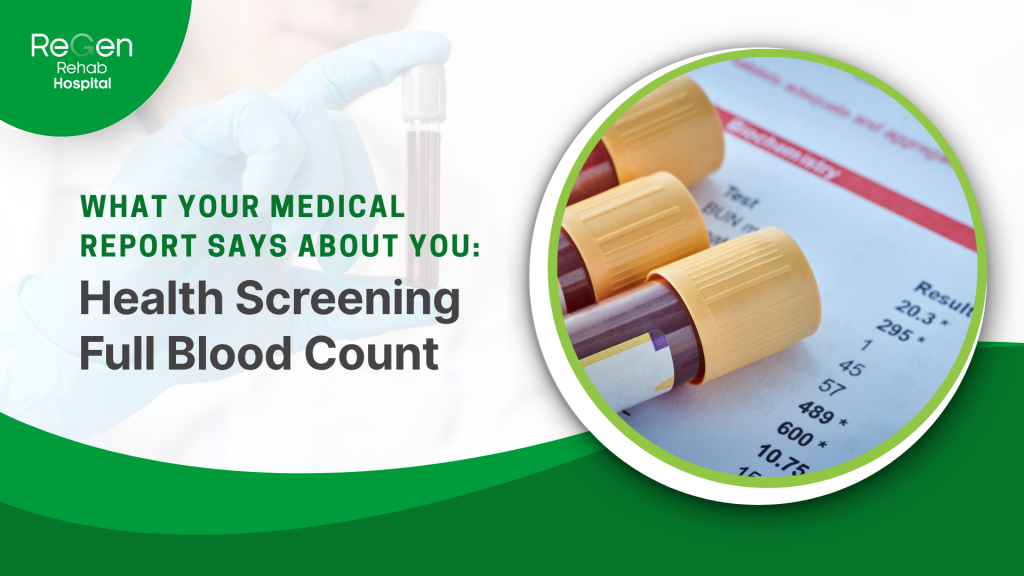Navigating your health journey often involves routine check-ups and medical screenings. Among the most common and insightful is the Full Blood count (FBC), also known as a Complete Blood Count (CBC). This fundamental test offers a snapshot of your overall health and can be a crucial tool in identifying potential health issues early. Understanding your FBC empowers you to take a more active role in managing your well-being.
What is a Full Blood Count (FBC)?
A Full Blood Count is a blood test that provides a comprehensive overview of the three main types of cells circulating in your blood:
- White Blood Cells (WBCs): These are the body’s primary defence against infection and disease. They play a vital role in the immune system.
- Red Blood Cells (RBCs): These cells are responsible for carrying oxygen from your lungs to the rest of your body and transporting carbon dioxide back to your lungs to be exhaled.
- Platelets: These tiny cells are essential for blood clotting, helping to stop bleeding when you get a cut or injury.
The FBC measures the volume and various characteristics of these blood cells, providing doctors with critical information about their quantity, size, and maturity.
Why is FBC Important for Health Screening?
The simplicity of a blood test belies its profound diagnostic capabilities. A quick blood sample can reveal a wide range of conditions and provide valuable insights into your body’s functions. For general health screening, the FBC serves several important purposes:
1. Detecting Underlying Conditions
The FBE is instrumental in detecting a variety of medical conditions. For example:
- Anaemia: Low levels of red blood cells or haemoglobin (the protein in RBCs that carries oxygen) can indicate anaemia, a condition that leads to fatigue and weakness.
- Infections and Inflammation: Elevated white blood cell counts can signal the presence of an infection or an inflammatory process occurring in the body. Different types of WBCs (neutrophils, lymphocytes, monocytes, eosinophils, basophils) can further pinpoint the nature of the infection or inflammation.
- Blood Disorders: Significant abnormalities in any of the blood cell lines can be a sign of more serious blood disorders, including leukaemia, a type of blood cancer affecting white blood cells. Early detection of such conditions is vital for effective treatment.
- Nutritional Deficiencies: Certain FBC parameters, like the size of red blood cells, can indicate deficiencies in essential vitamins and minerals, such as iron or Vitamin B12, which are necessary for healthy blood cell production.
2. Evaluation of Organ Function
While not a direct measure of organ function, the FBE can offer indirect clues. For instance, severe anaemia might impact heart function, and certain blood disorders can affect the liver or spleen. Abnormalities in blood cell counts can sometimes prompt further investigation into specific organ systems.
3. Monitoring Medical Treatments
For individuals undergoing treatment for various conditions, the FBC is a valuable tool for monitoring the effectiveness of medical interventions. For example, chemotherapy for cancer can affect blood cell production, and regular FBCs help doctors adjust treatment plans to minimise side effects and ensure patient safety. Similarly, for those on medication for chronic conditions, FBCs can access the response to treatment and if there are any adverse effects on blood cell counts.
Decoding Your FBE Report
Your FBC report will typically list various parameters with their measured values and a reference range (normal range). Values outside this range are usually flagged. While our doctor will interpret the results, a basic understanding of what each parameter signifies can be empowering:
Full Blood Examination (FBE) Reference Table
| Parameter | Common Adult Male Range | Common Adult Female Range | Unit | What It Measures |
|---|---|---|---|---|
| Red Blood Cell (RBC) Count | 4.5 – 6.5 | 3.8 – 5.8 | mil/cumm | Total number of red blood cells, which carry oxygen throughout the body. |
| Haemoglobin (Hb) | 13.0 – 18.0 | 11.5 – 16.0 | g/dL | Oxygen-carrying protein in red blood cells. |
| Haematocrit (Hct/PCV) | 40 – 54 | 35 – 47 | % | Percentage of blood volume made up of red blood cells. |
| Mean Corpuscular Volume (MCV) | 78 – 100 | 78 – 100 | fL | Average size of red blood cells; helps classify types of anaemia. |
| Mean Corpuscular Hb (MCH) | 27 – 33 | 27 – 33 | fL | Average haemoglobin content per red blood cell; indicates oxygen-carrying capacity |
| White Blood Cell (WBC) Count | 4.0 – 11.0 | 4.0 – 11.0 | thu/cumm | Total number of white blood cells that fight infection and inflammation. |
| Platelet Count (PLT) | 150 – 400 | 150 – 400 | thu/cumm | Number of platelets in the blood, essential for normal blood clotting. |
Differential WBC Count
| Subtype | Reference Range (Male & Female) | Unit | What It Indicates |
|---|---|---|---|
| Neutrophils | 40 – 75 | % | Often elevated in bacterial infections. |
| Lymphocytes | 20 – 45 | % | Typically elevated in viral infections. |
| Monocytes | 2 – 10 | % | Increased in chronic inflammation or certain infections. |
| Eosinophils | 1 – 6 | % | Elevated in allergic reactions or parasitic infections. |
| Basophils | 0 – 1 | % | Involved in allergic responses and inflammation. |
Note: These are general reference ranges. Actual normal ranges can vary between laboratories. Always consult your specific lab report with our doctor for accurate interpretation.
It is important to remember that abnormal results do not always indicate a serious medical condition. Many factors, such as hydration levels, medications, or recent illness, can temporarily influence your blood test outcomes. Our doctor will consider your overall health, medical history, and other relevant tests to provide an accurate diagnosis and guide the next steps in your care.
Taking Charge of Your Health
Understanding your Full Blood Count is a valuable step toward proactive health management. It empowers you to have informed, meaningful discussions with your healthcare provider and to take timely action when needed.
Regular health screenings, including a complete blood count, play a crucial role in maintaining long-term health and preventing potential complications. Always review your results with a qualified doctor to ensure clarity, accuracy, and peace of mind.
Schedule your screening today to take the first step toward better health.

